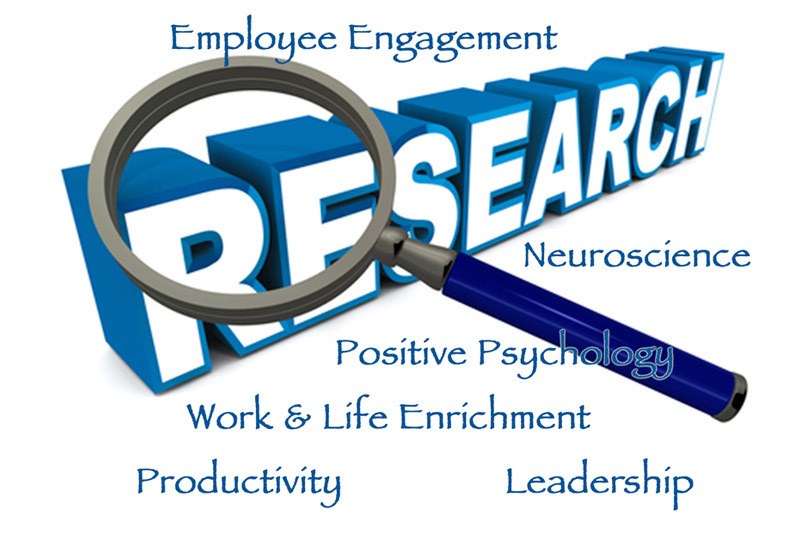Mindfulness for Leaders:
The Power of Laser Focus Moments

Photo 186011385 / Business © Noipornpan | Dreamstime.com
For millennia, disciplined meditation and mental awareness techniques have been a daily practice for those who want to take charge of their lives. We have been meditators for over 40 years and can say from personal experience that meditation is the super-highway to inner peace, health, happiness, and an enlightened perspective.
We call meditation medication! And if you’ve meditated for any length of time, you know the medicinal benefits of a regular meditation practice. However, the word meditation can be misunderstood, labeled as a "New Age" gimmick or worse, a religious practice that doesn't belong in the business world.
Nothing can be further from the truth!
A growing number of companies (IBM, Medtronic, Service Master, BioGenex, Boeing, Apple, Microsoft, Google, Yahoo, Cisco – and yes, The American Stock Exchange) are taking impressive steps to establish inner focus experiences as business best practices. People who are in touch with their “deeper selves” are helping to guarantee their organization’s profitability, productivity, brand reputation, and customer loyalty.
Extraordinary Leaders who want to create an edge and improve their leadership skills and productivity should give our practice of Laser Focus Moments a try! (Laser Focus Moments is what we like to call meditation for Extraordinary Leaders.)
By quieting the mind and relaxing the body, leaders experience deep states of mental clarity, relaxation, and higher states of awareness. Inner Focus strategies allow you to access your higher mental faculties that connect you with what neuroscientists call the “Deeper Self” and what we refer to as the Extraordinary You.
As disciplined Inner Focus has become more well-known in the West, scientists have begun to quantify its physical, mental, and emotional benefits in thousands of studies. Researchers have discovered that it’s not just one particular meditation method that is the definitive practice in and of itself. Benefits have been shown in a wide variety of focused awareness techniques.

REsearch supports Laser Focus Moments
(aka, meditation)
In a recent study out of Georgetown University Medical Center (GUMC), researchers compared meditation and medication directly for the first time — and found them to be equally effective.
A 2007 national government survey demonstrated the rise in use of meditation techniques by asking about complementary and alternative medicine use in a sample of 23,393 U.S. adults. Results found that 9.4% of respondents (representing more than 20 million people) had used meditation techniques in the past 12 months—compared with 7.6% of respondents (representing more than 15 million people) in a similar survey conducted in 2002.
Meditation is good for children too!
In that same 2007 survey, a sample of 9,417 children showed the following results: 1% (representing 725,000 children) had used meditation techniques in the past 12 months.
How to Practice Laser focus Moments as an Extraordinary Leader
Laser Focus Moments and Mindfulness have a lot in common, but there is a subtle and very powerful difference. Consider these two definitions:
Mindfulness: Paying attention on purpose, in the present moment, and nonjudgmentally, to the unfolding of experience moment to moment.
(Jon Kabat-Zinn, founder of Mindfulness-Based Stress Reduction)
Laser Focus Moments: Spending intentional time in contemplation and reflection to connect with your Core Abilities, noticing any thoughts, ideas, or whispers of wisdom that occur.
(Cher & Bil Holton, co-founders, Holton Consulting Group, Inc.)
There are two types of Laser Focus Moments that can benefit Extraordinary Leaders:
Structured
Laser Focus Moments
- Scheduled, uninterrupted time block;
- May be either scripted or silent;
- Sets you up for the day;
- Improves energy, creativity, and/or clarity;
- Manages stress.
Spontaneous
Laser Focus Moments
- In the moment;
- Unstructured, unscripted;
- Short
- Focused on a specific situation, issue, or need (i.e., before a presentation, difficult coaching session, or in the midst of a contentious meeting.
What are the payoffs for you, as a leader, to Practice Laser Focus Moments?
The following is a partial list of the significant mental, emotional, and health benefits of disciplined inner focus:
- In a study of health insurance statistics, meditators had 87% fewer hospitalizations for heart disease, 55% fewer for benign and malignant tumors, 30% fewer for infectious diseases, and 50% fewer doctor visits than those who were not experienced in inner focus techniques. 1
- Disciplined meditation lowers blood pressure to levels comparable to prescription drugs. 2
- Routine meditation increases circulation in beginning meditators by 30%, and in experienced meditators by as much as 65%. 3
- Meditation is endorsed by NIH as an effective intervention for the relief of chronic pain. 4
- 75% of long-term insomniacs who have been trained in relaxation techniques, inner awareness methods, and simple lifestyle changes have less trouble falling asleep. 5
- Meditation lowers blood sugar levels in diabetics. 6
- A group of inner-city residents suffering from chronic pain, anxiety, depression, diabetes, and hypertension trained in meditation techniques experienced a 50% reduction in overall psychiatric symptoms, a 70% decrease in anxiety, and a 44% reduction in medical symptoms.7
- Brain scans show that focused awareness shifts activity in the prefrontal cortex (behind the forehead) from the right hemisphere to the left. Left-prefrontals are usually more enthusiastic, have more interests, relax more, and tend to be happier. 8
- Concentration is greater after 40 minutes of inner work than after a 40-minute nap. 9
- Focused awareness helps chronically depressed patients by reducing their relapse rate by 50%.10
- Disciplined meditators notice more of their surroundings, but react more calmly than those who have little to no inner awareness experience to emotionally arousing stimuli.11
- Those with smoking, alcohol, and eating addictions who have been trained in focused awareness techniques break their addictions with significantly lower relapse rates than those receiving standard therapies.12
- Disciplined inner focus (IF) appears to slow aging. Those disciplined in meditation for twenty years or more were 12 years younger than their chronological age.13
So, medicate yourself on Laser Focus Moments everyday! It’s one of only a few “prescriptions” we label as non-negotiable if you want to lead at your highest, most elevated level of effectiveness. And it’s one of the best leadership practices we know to help you connect with your Real Self, the Extraordinary You … as you master the art of living and walk the Extraordinary Leadership path on practical feet.
References:
1 D. Orme-Johnson, Pschosomatic Medicine 49 (1987): 493-507.
2 Michael Murphy and Steven Donovan, The Physical and Psychological Effects of Meditation (Institute of Noetic Sciences, 1997).
3 Ibid.
4 J. Kabat-Zinn, L. Lipworth, R. Burney, and W. Sellers, “Four year follow-up of a meditation-based program for the self-regulation of chronic pain,” Clinical Journal of Pain 2(1986): 159-173.
5 Gregg Jacobs, Harvard Medical School, Say Goodnight To Insomnia, (Owl Books, 1999).
6 H. Cerpa, “The effects of clinically standardised meditation on type 2 diabetics,” Dissertation Abstracts International 499 (1989): 3432.
7 B. Roth, T. Creaser, “Meditation-based stress reduction: experience with a bilingual inner-city program,” Nurse Practitioner 22(3) (1997): 150-2, 154, 157.
8 R. Davidson, J. Kabat-Zinn, et al, “Alterations in brain and immune function produced by mindfulness meditation,” Psychosomatic Medicine 65 (2003): 564-570.
9 Reported in The Boston Globe, November 23, 2005
10 J.D. Teasdale, Z.V. Segal, J.M.G. Williams , V. Ridgeway, M. Lau, & J. Soulsby, “Reducing risk of recurrence of major depression using mindfulness-based cognitive therapy,” Journal of Consulting and Clinical Psychology, 68 (2000): 615-23.
11 Michael Murphy and Steven Donovan, The Physical and Psychological Effects of Meditation (Institute of Noetic Sciences, 1997).
12 C.N. Alexander, P. Robinson, M. Rainforth, “Treatment and prevention of drug addiction,” Alcoholism Treatment Quarterly 11 (1994): 11-84; J. Kristeller and B. Hallett, “An exploratory study of a meditation-based intervention for binge eating disorder,” Journal of Health Psychology Vol 4, (1999): 357-363; P.A. Royer-Bounouar,“ A new direction for smoking cessation programs,” Dissertation Abstracts International 50, 8-B (1989): 3428; M. Shafii, R. Lavely, and R. Jaffe, “Meditation and marijuana,” American Journal of Psychiatry 131 (1974): 60-63. 13 R.K. Wallace, M.C. Dillbeck, E. Jacobe, B. Harrington, International Journal of Neuroscience 16 (1982): 53-58.
13 Excerpted from Freedom from Stress, David and Karen Gamow, Glenbridge Publishing (2006).
Image Credits:
©dreamstime_m_186011385
© clipart109463247
© Dreamstime.com 186011385
© Cher Holton and © clipart.com

For more ideas on how you can empower your leaders to be Extraordinary, please schedule a complimentary Zoom session, and learn about our customized Extraordinary Leadership Think Tanks, Turbo-Training, and Retreat Forward Team Gatherings.